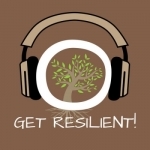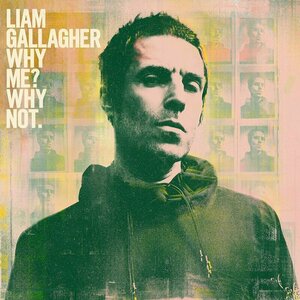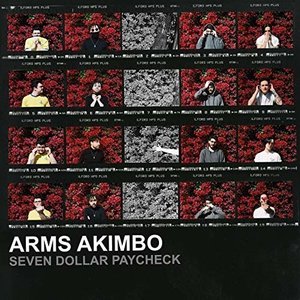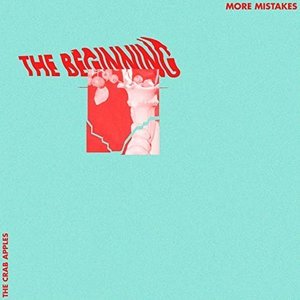
Baby Monitor Duo (VoIP)
Lifestyle and Health & Fitness
App
Now with live video streaming! All you need are TWO iOS-devices – iPhone / iPad / iPad Touch –...
Bong Mines Entertainment (15 KP) rated Seven Dollar Paycheck by Arms Akimbo in Music
Jun 17, 2019
“I feel like the song is a letter to my band and my loved ones back home. I wanted to tell the people in my life that even though it’s not the easiest path that we’re on, it’s the right path and we’re not going to give up. We don’t play music because we want to. We play music because we have to. And, as we say in the song, ‘if we’re patient then we’ll make it eventually’.”
‘Pitchfork’ tells an interesting tale of a young musician who is out on the road, on tour in west New Mexico, very far away from a special woman who has his heart.
Apparently, it was hard for him to goodbye to her, and shortly after his departure, he felt that he had let her down. Her emotional wellbeing made him question if she will still want him when he returns home.
While on tour, he thinks about her text message which states how he always let love slip away. Deep down, he wishes she’s wrong about that statement.
Later, things aren’t the same and a tad bit quiet when they talk on the phone. Also, the thoughts of losing her and not fulfilling his musical goals scares him. But he remains patient and hopes that everything works out in his favor.
“I wrote ‘Pitchfork’ on a non-stop drive back to LA from Austin, Texas, after SXSW 2018. Facing the existential dread that comes with finishing a tour, I couldn’t help but think about the way that being a musician connects you with so many people while simultaneously being extremely isolating. Music is our form of communication to reach people who might be feeling the same way that we are and we use that to build a community. But functioning as a musician means being on the road and being away from the people that you care about. This dichotomy can be tough to balance.”
Arms Akimbo’s consists of Peter Schrupp (vocals, guitar), Chris Kalil (guitar, vocals), Matthew Sutton (drums), and Colin Boppell (bass).
They labeled their single ‘Pitchfork’ in reference to the lyrics at the end of the song.
The likable tune encourages those in the music industry to never give up. Also, it narrates the existential dread which comes with finishing a tour.
“The song was written in two parts, with the first section functioning almost like a tour diary, a vignette of our life on the road. The second part is more of a personal plea to my loved ones to stick by me on this journey. It’s also my attempt to explain why I have to play music and why it’s so deeply instilled into who I am.”
‘Pitchfork’ contains a relatable storyline, warm vocal tones, and summery instrumentation flavored with melodic guitars.
The song is featured on Arms Akimbo’s latest EP, entitled, “Seven Dollar Paycheck”.
https://www.bongminesentertainment.com/arms-akimbo-pitchfork/
Bong Mines Entertainment (15 KP) rated The Beginning - Single by The Crab Apples in Music
Jul 10, 2019
“You’ve already taken all your roots. Planted at least two seeds and you talk about them and I smile and nod my head. Though deep down I feel like dying. ‘Cause I know you have your life across the sea while I’m stuck in here, lost, wondering what I might potentially be.” – lyrics
‘The Beginning’ tells a bittersweet tale of a young woman who wants to travel overseas to visit a special guy in her life, someone who she desires to be with.
While in preparation to depart, she decides not to go and see him anymore. Subsequently, she rejects the idea of traveling on a plane to a far-away land.
Her sudden decision might be based on the fact that she considers herself an easy prey whose heart was effortlessly captured by the above-mentioned individual.
Later, she admits that if he would have opened his hand, she would’ve fallen into his trap like a big dumb fly.
What she wants now is to be free from his enchanting hook, which he uses to catch victims who are attracted to his charm.
But in order to achieve her desired goal, she can’t go to see him because she will fall under his spell once again.
‘The Beginning’ contains a relatable storyline, pleasing vocals, and buoyant instrumentation flavored with guitar products and alternative-pop elements. Also, the likable tune is featured on The Crab Apples’ “More Mistakes” EP.
“‘The End’ and ‘The Beginning’ are two parts of the same song. But in the versions we have made, we understand each part as different entities. Recording ‘The End’ was amazing because we experienced like never before. We went crazy with voice effects and synths. Laia came to the studio when she only needed to record the bass and recorded it in a shot as she listened and discovered how she had mutated the song throughout the process. All this took us away from our habitual ways of doing things and took us to lands we had never explored before.” – The Crab Apples
The Crab Apples consists of Carla Gimeno (vocals, guitar), Laia Alsina (electric guitar), Laia Martí (bass) and Mauro Cavallaro (drums).
What started as a project between four friends from the same town, quickly grew and they became the group we know now.
The release of their EP has led the dynamic foursome to comfortably play on stages all over Spain.
Not too long ago, Laia Alsina mentioned why their custom pedalboards for guitar and bass gives them freedom and peace of mind while on tour.
“I’ve been practically two years with the Evo Track S2 pedalboard and it has certainly been a great change. I find it very comfortable and easy to use to carry my pedals and especially when playing live. The elevation of the second row really helps me to activate and deactivate the effects easily. It prevents me to play accidentally the pedal on the side (common). I’m very happy because I’ve toured a lot and the pedalboard still lasts.” – Laia Alsina
Although they might not look like it at first sight, The Crab Apples considers their mistakes beautiful. Through their scars, what once seemed weak is now attractively strong.

The Festival Guide
Music and Magazines & Newspapers
App
The Festival Guide is a 500 page magazine that is packed with everything you need for the festival...

Get Resilient! Resilienz-Training mit Hypnose
Health & Fitness and Medical
App
"Get Resilient! Building Resilience by Hypnosis • Develop greater resilience to resist stress and...
Hazel (1853 KP) rated Touching the Rock: An Experience of Blindness (Notes on Blindness Film Tie-in) in Books
May 23, 2017
It is not often a blind man writes a book, and “write” is a word used due to the lack of a better. John M. Hull gradually lost his sight, registering as blind in 1980, a couple of days before the birth of his son. Although anticipating the event, John struggled to come to terms with his new circumstances and adjust to a new way of living. From 1983 through to 1985, John recorded his thoughts on tape, in diary form, as a way to ascertain and understand his predicament. Originally titled Touching the Rock (1990), John’s book has been republished as Notes on Blindness after the release of the film of the same name.
Initially, John made recordings every day, dictating the everyday occurrences he encountered. Amazingly, despite his disability, John was able to continue as a university lecturer and delve deeper into the world of theology. The way John thinks things through as he speaks reflects his academic abilities. Although he may have despaired at the thoughts of not being able to see his children, he had a fairly positive outlook on life.
John’s thought capacity and religious ideology are evident in his assemblage of diary entries. As a blind person, he learns to see the world in an alternative way, and often feels closer to God as a result. Through these new experiences, John begins to see the light despite the darkness.
The metaphorical descriptions of blindness help the reader to understand the horror and difficulties not being able to see visually provokes. This is heightened by John’s recordings of the bad dreams he often suffers, in which he is able to see. His fixations on these dreams are assumedly a fascination with visual imagery, which he does not have access to in his waking life.
It is hard not feel sorry for John as he reports the conversations he has with his young children. The effort to communicate and play with them is far greater than a seeing parent. Remarkably, as John begins to adjust to his new lifestyle, his children take the situation in their stride.
Notes on Blindness is also an educational narrative for those without sight problems. John explains the things other people, in attempts to be helpful, do that result in making things far more confusing for John as he tries to navigate his way from one place to another. Despite what most think, blind people are fairly good at walking routes they are familiar with, and, with the help of a stick, can safely travel through new areas. Once people start shouting instructions, it is difficult to pay attention to the location and listen to everyone else at the same time.
John’s voice is extremely articulate, and his thoughts profound, which may suggest heavy editing when compiling the recordings into written form. However, as he is an academician, his eloquence of speech does not feel forced or faked.
Notes on Blindness remains the same as the original publication but with the added inclusion of an introduction by Cathy Rentzenbrink, and an epilogue by his wife Marilyn, written in 2016, a year after his death. These, the latter in particular, provide an insight into how John’s blindness affected those around him and emphasises what a truly remarkable man he was.
Of the many memoirs available on bookshelves today, Notes on Blindness is a truly unique publication. It is not telling a story, or recounting a well-lived life, but gives great insight into the world of the blind. As John’s thoughts were not originally recorded with intention of being available to everyone, they are all the more personal and honest, provoking emotion and providing the reader with a new way of seeing. It is a book that will stay with you for a very long time.
Hazel (1853 KP) rated Notes on Blindness: A Journey Through The Dark in Books
Dec 17, 2018
It is not often a blind man writes a book, and “write” is a word used due to the lack of a better. John M. Hull gradually lost his sight, registering as blind in 1980, a couple of days before the birth of his son. Although anticipating the event, John struggled to come to terms with his new circumstances and adjust to a new way of living. From 1983 through to 1985, John recorded his thoughts on tape, in diary form, as a way to ascertain and understand his predicament. Originally titled <I>Touching the Rock</I> (1990), John’s book has been republished as <I>Notes on Blindness</i> after the release of the film of the same name.
Initially, John made recordings every day, dictating the everyday occurrences he encountered. Amazingly, despite his disability, John was able to continue as a university lecturer and delve deeper into the world of theology. The way John thinks things through as he speaks reflects his academic abilities. Although he may have despaired at the thoughts of not being able to see his children, he had a fairly positive outlook on life.
John’s thought capacity and religious ideology are evident in his assemblage of diary entries. As a blind person, he learns to see the world in an alternative way, and often feels closer to God as a result. Through these new experiences, John begins to see the light despite the darkness.
The metaphorical descriptions of blindness help the reader to understand the horror and difficulties not being able to see visually provokes. This is heightened by John’s recordings of the bad dreams he often suffers, in which he is able to see. His fixations on these dreams are assumedly a fascination with visual imagery, which he does not have access to in his waking life.
It is hard not feel sorry for John as he reports the conversations he has with his young children. The effort to communicate and play with them is far greater than a seeing parent. Remarkably, as John begins to adjust to his new lifestyle, his children take the situation in their stride.
<i>Notes on Blindness</i> is also an educational narrative for those without sight problems. John explains the things other people, in attempts to be helpful, do that result in making things far more confusing for John as he tries to navigate his way from one place to another. Despite what most think, blind people are fairly good at walking routes they are familiar with, and, with the help of a stick, can safely travel through new areas. Once people start shouting instructions, it is difficult to pay attention to the location and listen to everyone else at the same time.
John’s voice is extremely articulate, and his thoughts profound, which may suggest heavy editing when compiling the recordings into written form. However, as he is an academician, his eloquence of speech does not feel forced or faked.
<i>Notes on Blindness</i> remains the same as the original publication but with the added inclusion of an introduction by Cathy Rentzenbrink, and an epilogue by his wife Marilyn, written in 2016, a year after his death. These, the latter in particular, provide an insight into how John’s blindness affected those around him and emphasises what a truly remarkable man he was.
Of the many memoirs available on bookshelves today,<i> Notes on Blindness</i> is a truly unique publication. It is not telling a story, or recounting a well-lived life, but gives great insight into the world of the blind. As John’s thoughts were not originally recorded with intention of being available to everyone, they are all the more personal and honest, provoking emotion and providing the reader with a new way of seeing. It is a book that will stay with you for a very long time.

Piano with Songs
Music and Games
App
Piano Free has the largest song catalog of any piano on the app store. With over 1,500 songs to...

Why Me? Why Not. by Liam Gallagher
Album Watch
Good things come to those who wait: and so, this summer, Liam Gallagher returns with a new single, a...
5 Minute Movie Guy (379 KP) rated If I Stay (2014) in Movies
Jun 28, 2019
Well, if you answered that question with a resounding “yes!”, then like me, you’ll probably find this movie to be pretty darn stupid. Actually, regardless of your opinion on the matter, I think it would be hard for anyone to escape the fact that this movie is pretty darn stupid. However, as much as I find the central question of the movie to be absurd and even offensive, it didn’t detract from my interest in seeing the film. So let’s not make the assumption that I disliked this movie from the get-go, because that’s really just not true. Even though I may disagree with it, I can certainly sympathize with the idea of a teenager who is experiencing a life-shattering trauma and is afraid to continue living on afterward. However, I would personally argue that she hasn’t actually experienced any of that at all. She’s living in an extra dimensional safe-zone. Her horror can’t be real unless she makes it real by returning to life to face it. To look at it another way, couldn’t we say that if she chose death instead, that she never would have experienced the tragedy at all since she was stuck in a coma, and that she would be dead without ever knowing the fate of her family? That’s what I think, though I’ll admit it’s rather complicated as it draws upon unanswerable questions. To be frank, it’s a bogus scenario for a bogus movie that isn’t even worthy of that much thought, and clearly wasn’t ever given that much thought.
Before I digress on this topic, I’d like to look into a few of its implications, because I think it’s sending a terrible and dangerous message to its viewers, particularly the teenagers it’s targeted to. Basically, I believe the film is implying that death is a perfectly okay alternative to facing an undesirable change. I find that very idea to be immoral, irresponsible, and horribly atrocious. “Sorry your dad died, Timmy. If you can’t bear to live another day and want to end it all right here, well that’s okay with us. We understand and we won’t judge!” Are you kidding me? What kind of a message are they trying to send here? “Bad day? Just give up! Things are great here in Heaven! Join us today!” Is that really what they’re trying to tell us? How is anyone possibly okay with this? The film is essentially preaching that killing yourself is a perfectly acceptable option when life gets hard, and I have a really big problem with that. Whether we want to think about it or not, suicide is always an option we have in life, but that doesn’t mean that we should encourage it or try to pretend that it’s ever a favorable opportunity. Mia doesn’t even know what life will be like if she wakes up because she hasn’t lived it yet. Her fears are fully based off of negative assumptions. Yeah, maybe things will be really hard if she comes out of her coma. Maybe she’ll wish she was dead. Or maybe she’ll go through some difficult times, but then maybe things will get better and she’ll pick up the pieces and end up living a wonderful and happy life. Had she actually endured this new life and struggled with thoughts about suicide, I think it would have made for a far more compelling narrative, rather than all of this hypothetic nonsense. Either way, good or bad, life goes on. It’s up to us to adapt to it. Where there is hope, there is always possibility. With all that said, I would still contend that If I Stay’s premise is only the tip of the iceberg of its problems. This supposed tear-jerked failed to stir up any sympathy or sadness from me, and there are a few major reasons why.
First of all, it completely fails as a love story. The film is almost entirely devoid of romance, and has no believable connection between Mia and her boyfriend, Adam. Rather than being a Prince Charming type, Adam’s mostly just a jerk that she shouldn’t be wasting her time with in the first place. Yet the movie tries to make you believe that it’s love, and that this is what all normal relationships are like. It’s a complete crock. Movies like this give girls a false understanding of what love should be, and I find that to be an unforgivable offense. Adam’s the local hot shot rocker who falls for Mia, the talented young cello player who aspires to go to the renowned music school Julliard in New York. Adam manages to win her heart and the two of them start dating. Unfortunately though, their relationship can be pretty unpleasant to watch. Adam’s living the life of a local rock star and is blindly dragging Mia along for the ride, introducing the sweet, young girl to a world of parties, sex, and alcohol. Adam’s utterly oblivious to her disinterest in such a lifestyle and he rarely shows any concern for her feelings anyway. Yet she’s so foolishly committed to him that she follows this path of corruption, all for a guy who only thinks about himself. I thought this was supposed to be a love story, but it’s severely lacking in the love department. Just because Adam occasionally does something nice, we’re supposed to think he’s a good guy and forgive him for the majority of the time when he’s a lousy boyfriend and a loser? Of course, how romantic! Their whole relationship is lifeless and immensely frustrating. If living with him was my alternative to death, believe me, I’d choose death without hesitation.
Had I not seen this film with a friend, it would have been the first movie I’ve ever walked out of. I haven’t hated a movie this much all year. Even with my friend there, I still thought about leaving, then had a good laugh about the film’s title being so perfectly appropriate, as I contemplated to myself whether or not I should go. As much as I wanted to leave, I stuck it out all the way to the end. Then the entire audience ended up laughing at the ending, which goes to show I was far from the only one that thought this movie was a complete joke and waste of time. I had more than a few laughs at the film’s expense, from its dumb and derivative dialogue, to the way Chloe Grace Moretz slightly crosses her eyes whenever she’s upset. While I think I still remained open-minded about the film despite my issues with the story, I really don’t think the film itself was any good, nor does it appear to serve any purpose. Seriously, what’s the point of this movie? To give people hope that you can overcome obstacles in life? To justify suicide? I don’t know. Halfway through the movie, I was so disengaged from it that I was imagining how fun it would be to do cartwheels in the theater. That must be the lesson that I learned from all this. Well, that and to steer clear of crummy musicians, I suppose. While I’ve heard a lot of praise about the film’s soundtrack, I thought Adam’s band was quite horrendous. They do have a moment of redemption when they cover a Smashing Pumpkins song, which may have been the only good moment in this otherwise pitiful movie. I also found the lyrics of that song to be unusually appropriate to my misery when they said, “I’ll rip my eyes out, before I get out.” It’s almost funny that this might have been the only moment of the movie I could actually relate to: the thought of ripping my eyes out before being able to leave.
If I Stay is a movie that disappoints and offends on nearly every conceivable level. The saddest thing about this film is that garbage like this actually exists. Its pro-death agenda is just plain horrible and ill-conceived. It also troubles me greatly to think that teenage girls might watch this film and think that Mia and Adam’s tumultuous relationship is a desirable model of love. Lastly, I’d like to note that the If I Stay novel does have a follow-up book titled Where She Went. Wherever she goes, I sure hope it’s not back to theaters. If I have to sit through another If I Stay movie, I might just give up on life myself.
(This review was originally posted at 5mmg.com on 9.5.14.)




